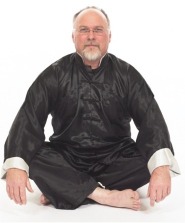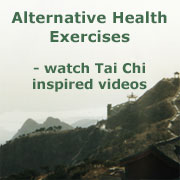Hi – and Happy New Year :^)
I’ve just finished reading “Why the West Rules – For Now” by Ian Morris – pub Profile Books ISBN 978 84668 208 7 – in my case borrowed from the library.
Quite weighty at 622 pages but a fairly easy read written with insight and humour it gives a very interesting perspective on human development over the ages.
It certainly gave me a lot to think about in terms of the east/west cultural exchange of which our own participation in Tai Chi is a part.
We were discussing this recently in one of my beginners classes – not that there was any doubt of the benefits of Tai Chi – but the class was looking for a way to encapsulate their thoughts.
It was of course different for everybody – but may I sugest that for most of us the main value is in what we learn about ourselves and how we work in all our facets. That in fact each person re-discovers for themselves the internal aspects using practice of the exercises and forms to experience, learn and develop ourselves. And that this is quite different for each of us, although seen externally as quite similar – each fish experiences the river differently but the water still flows downhill. Whether you are concerned about falls prevention or martial arts application this thread is common and crucial.
Tai Chi is becoming very popular these days and it seems to me that there is something of the “magic bullet” about the way Tai Chi is regarded – a bit like going to the doctor – “take this course of Tai Chi and everything will be better” – indeed 16 weeks or whatever of Tai Chi classes can have a significant effect – but that really is just the start. The point is to learn the skill of understanding one’s body and using it better so that our own internal systems can heal us and keep us healthy. The concept of Chi is part of that but something that each of us comes to understand on our own. No magic – just hard work and understanding.
I have noticed over the years that I have had a number of students with sporting interests – such as golf or running – who have told me of their improved sporting performance following a period of Tai Chi practice. I think the first I remember was one who said he reduced his handicap by 3 or 4 strokes – and another who altered his running gait and so relieved a leg problem. This seems to be a common Tai Chi experience – for example with Ballet dancers learning Tai Chi to improve their balance and fluidity – and is summed up in the expression ” you can put Tai Chi into anything, but you can’t put anything into Tai Chi”.
Given a history of 400 years plus of studying the human body and it’s movement in relation to other people and the rest of the world – it is not surprising that Tai Chi already encompasses most aspects of the human experience and so forms a core resource – a repository of refined information of great value to all paths of human interest.
I’ve done quite a bit of work recently teaching Tai Chi as a falls prevention program, with some brilliant feedback – but it has got me thinking a lot about the wider aspects of the subject and led me to produce a whitepaper on the considerations of setting up a Tai Chi based falls prevention program – the whitepaper is available on the main website along with examples of the feedback.
I suppose the main point that I noticed is that if one tries to focus on those epeople known to be at risk of falls – eg over 60 yrs old , then there is a huge variation in capabliity and it requires a greatly increased level of input. Ideally therefore I suggest that one should start one’s program earlier say at 50+ when people still have a significant capability and another 10 years to learn the skills involved in the Tai Chi approach before their risk of falls becomes critical. This would truely be a falls prevention program – although it would probably be more appropriate to call it something like “balance and mobility for the over 50s”.
Anyone looking to set up such a program can contact me to discuss.
More practice, move naturally, relax, sink lower – injunctions we all receive no doubt from our teachers along with – do not use strength, just be in the present – and on this point it seems to me that the western educated mind is often the problem – but if one has an intellectual, western educated mind then it is too late to get rid of it – and so it also becomes the only tool to find the way out – by deciding to let it go. Intellectuals are often so wedded to their intellect as a way of life that they are not clever enough to realise they must let go of it in order to experience reality and their own broader human potential.
Oh and they can keep their intellect but now in its rightful place as a tool of the whole organism.
At least that has been my experience – doing it of course is difficult :^)
I managed to “win” a month’s classes at a local Mixed Martial Arts class of Kali and Thai Boxing – well it must be about 10 years since I did anything like that and even then I was overweight and unfit – so it was with some trepidation that I turned up at the class – I was also looking forward to some fun and was not disappointed. It has actually proved really enjoyable being a beginner again and working with young enthusiastic and helpful people. I have been delighted how well my body ( and brain ) have survived and responded positively. It has been a bit of a re-awakening and I feel much more alert for using my body dynamically. Unfortunately of course my movement suffers in a sparing situation – so I am now looking to practise Tai Chi movement in a more dynamic way without losing the core connection. However it does, once again, demonstrate that Chen Tai Chi practise has created an underlying level of fitness that enables the body to respond to change.
At The Letchworth Centre for Healthy Living on Thursday evenings I am now teaching a beginners class at 7.00 and an improvers class following on at 8.30pm – contact the centre for info and registrations.
I am delighted that The Letchworth Centre for Healthy Living have managed to arrange a measured trial of Tai Chi classes to evaluate the effects of Tai Chi related exercises on balance and by extension on the likely risk of falls. Quality of life, longevity and cost to health career stakeholders are all major issues. The trial covers June into September – I look forward to the classes and seeing the outcome. This is based on a previous very well received 8 week trial coupled to Moving Mindfully classes run by Judy Hammond.
Building on my work with the Letchworth centre for Healthy Living I will be running classes in Shefford for people approaching their 60’s and for those already in their 60’s or older – these classes will cover Tai Chi exercises aimed at improving balance and mobility – simple, gentle exercise suitable for those feeling vulnerable to falls with a view to reducing the risk of falls in later life.





